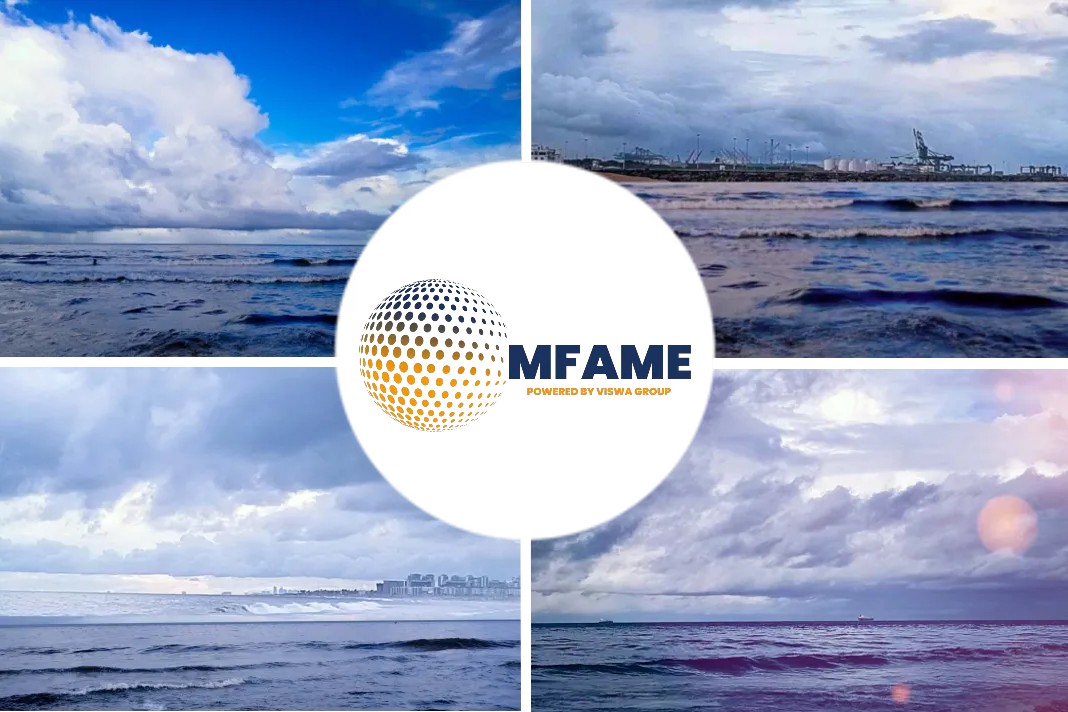- The system can handle a cargo ship of up to around 749 tonnes.
- As the use of such vessels becomes common, it will allow for the accumulation of feedback based on actual navigation to support the maintenance and improvement of system quality.
- The vessel to be equipped with this system is being built by Honda Heavy Industries for Asahi Tanker Co., Ltd. After completion and handover in April 2023, the ship is expected to operate as a biomass carrier for Aioi Bioenergy Corporation.
For a 499-tonne biomass fuel carrier being built by Honda Heavy Industries Co., Ltd., Tokyo-based firm e5 Lab Inc. and Mitsubishi Shipbuilding Co., Ltd., a part of Mitsubishi Heavy Industries (MHI) Group, have agreed to provide the design for “ROBOSHIP,” a standard hybrid-electric propulsion vessel the two companies are seeking to promote as a vision for the future of ships. The broad use of the futuristic ROBOSHIP can minimise CO2 emissions and reduce crew workload in the coastal vessel industry as reported by Mitsubishi Heavy Industries.
Robosip
ROBOSHIP utilizes a standard system package comprising the hardware for electric propulsion, including propellers, motors, switchboards, storage batteries, and generators, together with the software to safely and efficiently control this equipment.
The system can handle a cargo ship of up to around 749 tonnes.
The ship foregoes conventional diesel engines that require fossil fuel in favour of a hybrid system of large-capacity storage batteries and generators to drive the propulsion motors.
The adoption of Mitsubishi Shipbuilding’s high-performance twin skeg ship design lowers propulsion horsepower by more than 20%, reducing CO2 emissions during cruising, and allowing the ship to navigate completely CO2-free during port operations such as freight loading and unloading, pier docking and undocking, and entering or leaving port.
The generators are capable of switching between eco-friendly fuels including liquefied natural gas (LNG), hydrogen, ammonia, biofuel, and synthetic fuel, allowing all operations, including navigation, to be CO2-free.
Additional benefits
Additional benefits of the system include reduced noise and vibration for greater comfort inside the vessel, less need for troublesome diesel engine maintenance by highly experienced and knowledgeable engineers, and improved steering capabilities that make pier docking and undocking operations easier, reducing the workload on the crew.
Further, in the future, the mass production of ships equipped with this standardized system will lower costs, which will accelerate the widespread adoption of electric propulsion vessels.
As the use of such vessels becomes common, it will allow for the accumulation of feedback based on actual navigation to support the maintenance and improvement of system quality.
The vessel to be equipped with this system is being built by Honda Heavy Industries for Asahi Tanker Co., Ltd. After completion and handover in April 2023, the ship is expected to operate as a biomass carrier for Aioi Bioenergy Corporation.
It will also be equipped with the Marindows digital platform developed by Marindows Inc., utilizing communications and digital technologies to support the digital transformation (DX) of the coastal vessel industry.
Marine future stream
e5 Lab is a marine industry solutions provider, jointly established by four companies representing shipping firms and a trading company, to promote the electric propulsion and digitization of ships.
It aims to provide for the safe navigation of vessels, create a better work environment for the crew, and conserve the natural environment.
In March 2021, e5 Lab established Marindows to provide a marine digital platform to improve the work environment for crews.
Mitsubishi Shipbuilding, in its “MARINE FUTURE STREAM” growth strategy, has set goals for the decarbonization of the maritime economy through renewable energy and the carbon cycle, the effective utilization of the marine space with digitalization and electrification, and the generation of new ideas through marine-related innovation and making them a reality.
By developing and providing marine-related technologies accumulated by MHI Group, together with the general technologies of MHI, Mitsubishi Shipbuilding, as a marine system integrator, aims to resolve the issues facing customers and the world.
Going forward, e5 Lab and Mitsubishi Shipbuilding aspire to be a solution provider for the issues facing the maritime industry, jointly creating value with stakeholders with an emphasis on environmental, social, and governance (ESG) factors.
Did you subscribe to our newsletter?
It’s free! Click here to subscribe!
Source: Mitsubishi Heavy Industries















